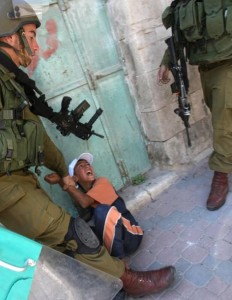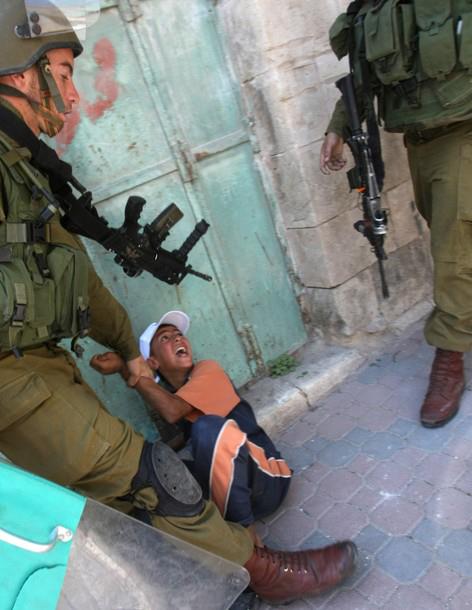
The United Nations Special Committee on Israeli Practices in the Occupied Territories condemned Israel’s treatment of Palestinian children in detention, and warned that patterns of the mistreatment of children belie “broader, longstanding concerns regarding Israel detention of Palestinians generally.”
The condemnation is the second instance in less than a month where Israel has been criticised over its treatment of children by an international body. The first came during late June, when Israel was accused of being in breach of the UN Convention on the Rights of Children by a delegation of British lawyers backed by the United Kingdom’s Foreign Office.
The preliminary observations come in the wake of the committee’s fact-finding trip to Jordan, Egypt and the Gaza Strip.
“Witnesses informed the committee that mistreatment of Palestinian children starts from the moment of detention,” said Ambassador Palitha T.B. Kohona, Permanent Representative of Sri Lanka to the UN in New York, and Chairperson of the Committee.
The report highlighted illegal detention practices used by Israeli forces against Palestinian children. Soldiers exploited the children’s lack of knowledge of law and their rights during the detentions.
“Children are not informed of their rights, including their right to legal representation and to not incriminate themselves,” he warned. The ambassador also warned that Israeli forces were using ‘pressure’ tactics to transform Palestinian children into informants.
“The committee’s view is that this is an unacceptable practice, one that Israel must end immediately.”
Apart from legal misdirection, Israeli forces also stand accused of being unnecessarily and excessively violent. When the children are detained, their families are insulted, intimidated and often even physically assaulted to prevent them accompanying the children, the report noted.
“Large numbers are routinely detained. Children’s homes are surrounded by Israeli soldiers late at night, sound grenades are fired into the houses, doors are broken down, live shots are often fired; no warrant is presented,” Kohona revealed. “Children are tightly bound, blindfolded and forced into the backs of military vehicles.”
But by far the most pressing issue, according to the committee, was the heavy-handed use of solitary confinement as a means of punishing children as young as 15.
“Israel’s use of solitary confinement against children flagrantly violates international human rights standards,” said Richard Falk, the UN Special Rapporteur on the situation of human rights in Palestine after consulting the Committee’s report. “However, using solitary confinement as a punishment for Palestinian children who wish to peacefully protest their situation, including by commencing a hunger strike against conditions of detention, is an appalling abuse of child prisoners.”
Solitary confinement is a punishment frequently inflicted on detainees found committing offences in prison which can range from participating in hunger strikes to hanging Palestinian flags in their cells.
Independent experts verified that prison conditions were “deplorable,” children were often required to sleep on concrete in rooms without windows.
“This pattern of abuse by Israel is grave,” the Special Rapporteur stressed. “It is inhumane, cruel, degrading, and unlawful, and, most worryingly, it is likely to adversely affect the mental and physical health of underage detainees.”
In addition to the mistreatment of children, the observers pointed out the frequently used illegal practice of demolishing Palestinian homes. Witnesses have noted an alarming increase in the rate of demolition, with more than 330 homes being destroyed in 2012 alone.
This, coupled with violence against Palestinians, has led the committee to conclude, “these practices amount to a strategy to either force the Palestinian people off their land or so severely marginalize them as to establish and maintain a system of permanent oppression.”




